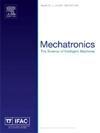Data-driven frequency-domain iterative learning control with transfer learning
IF 3.1
3区 计算机科学
Q2 AUTOMATION & CONTROL SYSTEMS
引用次数: 0
Abstract
Data-driven iterative learning control (ILC) can achieve improved tracking performance over model-based ILC by eliminating the fitting error from parametric system representations. Existing data-driven approaches in frequency domain take advantage of the affordability and speed associated with acquiring non-parametric frequency response function data for effective learning. However, the quality of data significantly influences the achievable performance. Additionally, a notable drawback is that learning is reset whenever the tracked trajectory changes, despite having learned similar frequency contents before. Extending these approaches to multivariate systems with non-negligible coupling is also not straightforward. This paper aims to address the aforementioned challenges in data-driven ILC by employing spectral analysis (SA), which improves the learned data-driven inversion by mitigating the measurement noise. Fast and robust convergence is made possible through an iteration-varying learning gain. Also proposed is a transfer learning strategy in the frequency domain, wherein the inversion learned in specific frequency bin(s) will be preserved and utilized to expedite convergence in subsequent tasks. The presented ILC algorithm based on SA naturally extends to the multi-input multi-output (MIMO) framework, and the convergence can be ensured by complex-valued matrix analysis. The methodology is experimentally validated on a galvanometer for the SISO case and an H-type dual-drive gantry system for the MIMO case, demonstrating enhanced performance, transfer learning capabilities, and applicability to MIMO systems.
基于迁移学习的数据驱动频域迭代学习控制
数据驱动迭代学习控制(ILC)通过消除参数系统表示的拟合误差,可以获得比基于模型的ILC更好的跟踪性能。现有的频域数据驱动方法利用了获取非参数频响函数数据的可负担性和速度来进行有效的学习。然而,数据的质量显著影响可实现的性能。此外,一个明显的缺点是,无论跟踪的轨迹何时改变,学习都会被重置,尽管之前已经学习了类似的频率内容。将这些方法扩展到具有不可忽略耦合的多变量系统也不是直截了当的。本文旨在通过光谱分析(SA)解决数据驱动ILC中的上述挑战,该方法通过减轻测量噪声来改善学习数据驱动反演。通过迭代变化的学习增益使快速鲁棒收敛成为可能。还提出了一种频域迁移学习策略,其中在特定频率bin(s)中学习到的反转将被保留并用于加快后续任务的收敛。本文提出的基于SA的ILC算法自然地扩展到多输入多输出(MIMO)框架,并通过复值矩阵分析来保证收敛性。该方法在SISO情况下的振镜和MIMO情况下的h型双驱动龙门系统上进行了实验验证,证明了增强的性能、迁移学习能力和对MIMO系统的适用性。
本文章由计算机程序翻译,如有差异,请以英文原文为准。
求助全文
约1分钟内获得全文
求助全文
来源期刊

Mechatronics
工程技术-工程:电子与电气
CiteScore
5.90
自引率
9.10%
发文量
0
审稿时长
109 days
期刊介绍:
Mechatronics is the synergistic combination of precision mechanical engineering, electronic control and systems thinking in the design of products and manufacturing processes. It relates to the design of systems, devices and products aimed at achieving an optimal balance between basic mechanical structure and its overall control. The purpose of this journal is to provide rapid publication of topical papers featuring practical developments in mechatronics. It will cover a wide range of application areas including consumer product design, instrumentation, manufacturing methods, computer integration and process and device control, and will attract a readership from across the industrial and academic research spectrum. Particular importance will be attached to aspects of innovation in mechatronics design philosophy which illustrate the benefits obtainable by an a priori integration of functionality with embedded microprocessor control. A major item will be the design of machines, devices and systems possessing a degree of computer based intelligence. The journal seeks to publish research progress in this field with an emphasis on the applied rather than the theoretical. It will also serve the dual role of bringing greater recognition to this important area of engineering.
 求助内容:
求助内容: 应助结果提醒方式:
应助结果提醒方式:


